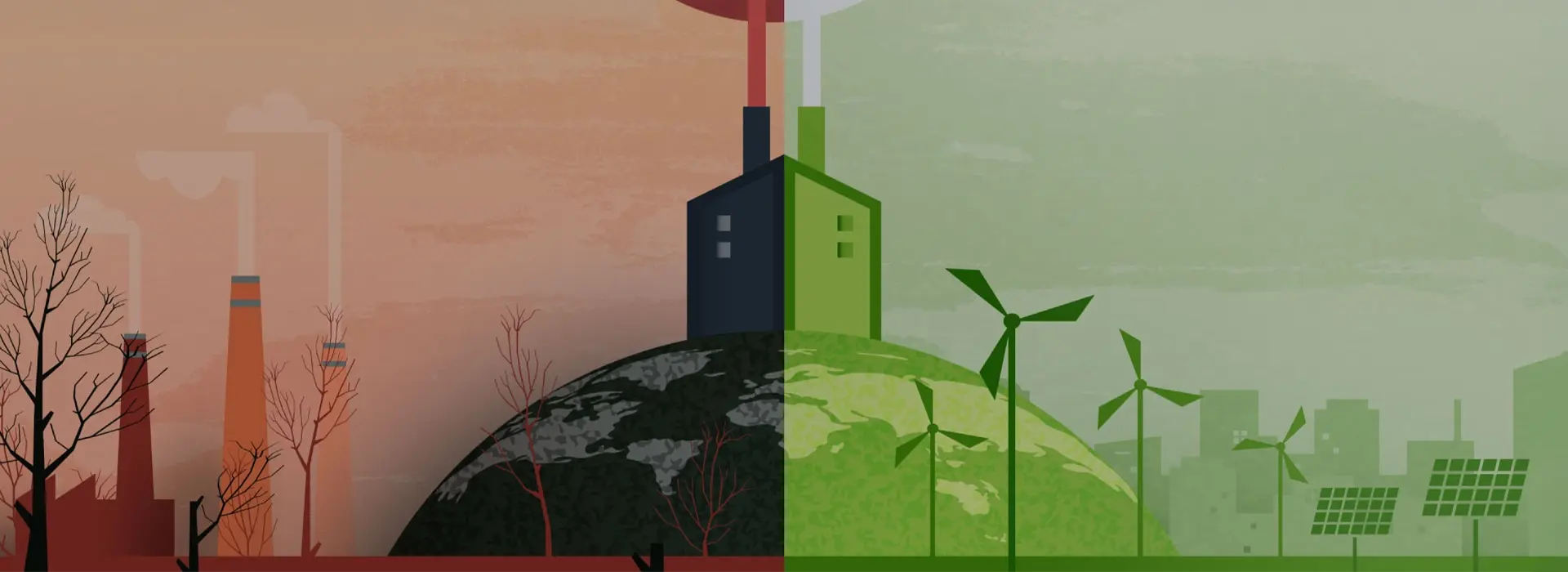What is Energy Transition and Why is it important?
Energy transition refers to the global shift from traditional, non-renewable energy sources such as coal, oil and gas, to cleaner and more sustainable alternatives such as wind, solar, hydro and geothermal power. This transition aims to address the challenges of climate change, reduce greenhouse gas emissions, and mitigate the negative impacts of energy production and consumption on the environment.
Energy transition is important for several reasons. First, the world's reliance on non-renewable energy sources has led to a significant increase in global carbon emissions, contributing to the ongoing climate crisis. By transitioning to cleaner energy sources, we can reduce our carbon footprint and limit the severity of climate change.
Second, energy transition can also help to improve public health by reducing air and water pollution associated with traditional energy production. This is particularly important in urban areas where poor air quality can lead to respiratory problems and other health issues.
Finally, energy transition can also lead to increased economic growth and job creation in the renewable energy sector. As more countries invest in renewable energy, there is a growing demand for skilled workers in areas such as engineering, construction and operations, creating new job opportunities and driving economic growth.
Common Energy Transition Terms
- Decarbonization
The process of reducing greenhouse gas emissions, particularly carbon dioxide (CO2), to mitigate the impacts of climate change. - Net-zero emissions
A state in which a system, such as an organization or a country, emits no more greenhouse gases than it removes from the atmosphere, typically achieved through a combination of emissions reductions and carbon offsets. - Carbon capture and storage (CCS)
The process of capturing carbon dioxide emissions from power plants, industrial processes, or other sources, and storing them underground or repurposing them for other uses, to prevent their release into the atmosphere. - Renewable energy
Energy that is generated from natural resources, such as wind, solar, hydropower, geothermal and biomass, that are replenished naturally and sustainably over time. - Energy efficiency
The use of technology and best practices to reduce energy consumption and waste, without sacrificing comfort, productivity or performance. - Green hydrogen
Hydrogen produced using renewable energy sources, such as solar or wind power, rather than fossil fuels, and considered an important low-carbon energy source for heavy industry and transportation.
 Partner With an Oil and Gas Marketing Agency That Specializes in Energy Transition Consulting
Partner With an Oil and Gas Marketing Agency That Specializes in Energy Transition Consulting
For more than 20 years, HexaGroup has helped clients with oil and gas marketing strategy and desirable results. As the industry and their businesses have evolved to embrace a more sustainable future, we have helped them navigate the opportunities and the challenges resulting from the energy transition.
HexaGroup brings significant benefits to companies seeking to communicate and promote their energy transition efforts and accomplishments. With industry-specific expertise, we offer a deep understanding of the unique challenges and opportunities that come with transitioning to a low-carbon future. This expertise allows us to develop effective communication strategies that resonate with stakeholders and demonstrate our clients’ commitment to sustainability.
We take a comprehensive approach to energy transition consulting, addressing and marketing the wide-ranging aspects of the transition from decarbonization and carbon capture and storage to renewable energy, energy efficiency and hydrogen production. Our approach helps clients demonstrate a well-rounded commitment to sustainability and engages stakeholders across the energy value chain.
Energy transition strategy and communications can have a significant impact on a company's brand reputation, particularly in the context of the growing public concern about climate change. As an oil and gas marketing agency, we help clients manage their brand reputation effectively, by developing communication strategies that are aligned with stakeholder expectations and promote our clients’ contributions to the energy transition.
Energy transition consulting should be creative and innovative. We bring fresh and innovative ideas to energy transition strategy and communications, helping clients stand out in a crowded and competitive market. This can include using digital marketing techniques, such as social media, to engage stakeholders and build a more robust and inclusive energy transition ecosystem.
Finally, we measure the effectiveness of energy transition strategy and communications using data and analytics to track engagement, sentiment and impact. This enables clients to refine their strategies over time and maximize their impact.
Why HexaGroup for Energy Transition Consulting?
At HexaGroup, we combine decades of experience in oil and gas with award-winning marketing consulting, strategy and communications skills to help our clients embrace the energy transition, identify their associated opportunities and challenges, and promote their contributions to a lower-carbon future.
Good to grow? Gauge your readiness in 10 minutes flat.



